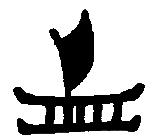
Article
Ancient Hawaiian Anniversaries
by Serge Kahili King
They didn't have any.
Sorry, that isn't quite accurate. However, they did not have very many, and they did not think of them in the usual western way of celebrating a past event.
Ancient Hawaiians did not celebrate birthdays except in one case, that of the first-born child. Even then, only the first birthday of this child was celebrated. This child, called hiapo, was considered very special in several ways. First of all, it was taken for granted that the hiapo belonged to the grandparents, who were the keepers of family geneologies and traditions. If the first-born were male, he was given to the paternal grandparents, and if female, she was given to the maternal grandparents, to be raised as a foster child. It was the duty of the hiapo to become a living history book, to memorize all the knowledge that the grandparents had to share. While other children played and learned skills, the hiapo studied and cared for the grandparents. If the first-born died or was incompetent, another child of the family would replace him or her. As an adult, the hiapo became the family advisor in all matters.
Since no other birthdays were celebrated, there is no way to tell who was born when until after records began to be kept under the Hawaiian Monarchy. All dates for any events before 1778, the year of the arrival of Captain Cook, are products of someone's imagination.
In addition to no birthdays, there were no wedding anniversaries, no commemorations of past wars or victories, no regular celebrations of past accomplishments of any kind. Partly, this was probably due to the cultural emphasis on present moment experience. What was past was past, and unless a past event was producing an ongoing influence, it just didn't matter any more.
There were plenty of celebrations, of course; they were just not based on past events. The weaning of a male child, when he was old enough to toddle over and eat with the men, was cause for a family feast, as was the time of his circumcision. There were probably celebrations for special times in the lives of female children, too, but no records of that have survived that I know of. Weddings were certainly celebrated, and also the arrivals of important people, but neither wedding anniversaries nor past arrivals were thought of as being important.
There was one significant annual celebration called the Makahiki. It was timed to begin with the first new moon crescent, called Hilo, that occurred after the "rising" of the Pleiades, when the star cluster appeared on the eastern horizon as the sun was setting in the west. Makahiki was a time for harvesting, thanksgiving, cleansing, partying, cessation of hostilities (although not all chiefs followed this), sports events, building, repairs, and tax-collecting. It lasted roughly for the four months of what we would call the winter season. Traditionally, it honored Lono, god of peace and agriculture, but when Cook arrived in the middle of a Makahiki celebration on the Big Island on a ship that resembled elements of a legend about a chief also named Lono who had sailed away and promised to return, that particular Makahiki took on some of the characteristics of an anniversary. As most people in Hawaii and England know, that story had an unhappy ending, but the problems did not occur until after the party was over.
However, as the ancient Hawaiians said, E uhi ana ka wa i hala i na mea i hala Ð "Passing time obscures the past."
[Top of page] - Contact us